Activists with the Extinction Rebellion movement blocked a major route into downtown Edmonton Monday morning as part of a series of international protests demanding new climate policies — and drivers were not impressed.

The local chapter of the movement said it would be using “non-violent direct action to prevent catastrophic climate and ecological breakdown” by peacefully blocking the Walterdale Bridge during the Monday commute, starting at 7 a.m.

A handful of people linked arms to block traffic on the bridge, which links the south side of the city with the downtown.
Moments after the protesters walked out on to the road, a driver at the front of the blockade got out of their car and confronted the group, saying they needed to let traffic through.
“I gotta get somewhere, man,” he said in frustration.
He tried edging his car towards the linked protesters, but stopped short of driving through them.
Meanwhile, a motorcyclist just drove around the blockade and continued across the bridge.
Another man angrily confronted the group.
“I got a newborn I got to feed! Let me through! I’m parked right there, let me through!” the man shouted, adding he had to go to work.
Eventually police blocked the top of Walterdale Hill so traffic couldn’t go down to the bridge and was instead redirected east on Saskatchewan Drive.
Drivers stuck at the front of the blockade began laying on their horns and some got out of their vehicles, unsuccessfully begging the protesters to let them through.
By 7:30 a.m., police had arrived at the bridge, where protesters said they would remain until they were arrested.

Drivers pleaded with police to clear the road so they could get to work.
“You’re getting paid — what about the rest of these guys who are trying to get to their jobs?!?” a man ranted to officers.
Premier Jason Kenney, criticizing the action on Twitter, noted that traffic backups meant hundreds of cars were idling for no good reason.
Around 8 a.m., and officer told a bystander that police were negotiating to reopen the bridge but did not say when that would happen.
At the same time, police began re-routing vehicles the up Queen Elizabeth Park Road in order to clear the backlog.
Extinction Rebellion Edmonton said the action is part of #BridgeOut, a series of similar actions taking place across Canada.

Get daily National news
“By engaging in civil disobedience, Extinction Rebellion Canada hopes to pressure elected officials to enact legally binding policies to reduce Canada’s carbon emissions to net zero by 2025,” an advisory from the group said.
“This demand aligns with what the world’s best climate scientists tell us is needed to prevent runaway global warming.”

One of the protesters named George said he understood the drivers’ frustration.
“Frankly, none of us want to be here,” he said.
“But the failure of successive governments for the past 30 years, scientists, industry NGOs to create any meaningful change has led a group of volunteer activists, you know, to risk being arrested to bring attention to the issue, to start a conversation about the hard choices we face if we’re going to get out of this climate mess.”
By 8:30 a.m., the blockade had been cleared and traffic was flowing once again on the major roadway.
In a statement afterwards, Edmonton police said all people in Canada have the right to gather peacefully, however there are limitations on peaceful assembly contained in various sections of the Criminal Code.
“The Edmonton Police Service moved first to maintain public order as angry drivers were approaching the protesters,” the statement said.
Police formed a line between the protesters and the drivers, while the duty officer on shift negotiated with the Extinction Rebellion group to conclude the protest, warning police had the power to arrest them.
Police said the demonstrators wanted to stay in place until 9 a.m., but eventually agreed to leave shortly after 8 a.m.
While no charges were laid at the scene, Edmonton police said the blockade is under investigation and charges could be laid in the future.
Police thanked the people who were inconvenienced for their patience while officers negotiated a peaceful end to the protest.
Police Chief Dale McFee defended how officers responded to the protest, saying police were prepared to act. When asked why there were no arrests made in Edmonton even though police arrested protesters in other cities, McFee said those protests went on for a longer period of time.
“Some were three hours or more… You want to negotiate and let people be heard to get a peaceful resolution,” he said.
McFee said charges are still possible, including charges of mischief, and disputes social media criticism that police were sympathetic to protesters.
“We actually resolved this in a little over an hour. But at the same time, we weren’t prepared to sit and let this happen for a long period of time either.”
McFee addressed the optics of arresting a peaceful protester.
“That’s always a concern from a police perspective. You’re taking that into consideration. It’s not so much about the image. It’s about what falls from the image,” he said.
In a tweet, Ward 4 city councillor Aaron Paquette said the protesters should think of others.
“I understand where protesters are coming from, absolutely. They feel no one is listening and that their issue needs heightened attention. I get it. Yellow vests to environmentalists.
“The [attention] garnered is seen as a win. It’s not. It just pushes hearts away from the message.”
Mayor Don Iveson said he respects people’s rights to make a point, but is concerned consistent patterns of disruption will erode public support.
“I think there are limitations on disruption to a community, and I’m afraid the irritation of the disruption is significant and so I don’t think these are helpful tactics,” Iveson said.
Iveson said it was great that police resolved the situation peacefully.

Similar demonstrations happened earlier on Monday in European cities like Berlin and Amsterdam as well as in Halifax and the Toronto area in eastern Canada.
The scene was more peaceful at the bridge spanning Toronto’s Bloor Viaduct, where police officers were on scene monitoring the protest, but said no arrests were expected.
READ MORE: Climate change protest to close Halifax’s Macdonald Bridge during Monday morning rush hour
Halifax police Const. John MacLeod says less than 100 protesters had gathered at the Angus L. Macdonald Bridge linking the city with nearby Dartmouth, prompting officers to close the area to all traffic.
The protesters marched down to the bridge toll plaza waving flags and signs before congregating in an area near the tolls as police cruisers blocked traffic on routes leading to the bridge.
Members of the group usually sit or lie down in front of traffic until they are arrested and taken away by police officers. Such a scene played out in cities around the world throughout the day.
In Berlin, around 1,000 people blocked the Grosser Stern, a traffic circle in the middle of the German capital’s Tiergarten Park dominated by the landmark Victory Column, in a protest that started in the early morning.

Members of Extinction Rebellion also set up a camp outside Chancellor Angela Merkel’s office, reflecting dissatisfaction with a climate policy package drawn up last month by her government, ahead of what it called an “international rebellion” starting Monday. The group said protests are planned in 60 cities worldwide.
READ MORE: Climate activists plan to occupy Kitchener bridge on Monday morning
In Amsterdam, hundreds of demonstrators blocked a major road outside the Rijksmuseum, one of the city’s most popular tourist draws, and set up tents.
The demonstration went ahead despite the city banning activists from gathering on the road. The protesters ignored police calls for them to move to a nearby square.

Founded in Britain last year, the Extinction Rebellion movement, also known as XR, now has chapters in some 50 countries.
— With files from Julia Wong Global News; Michelle McQuigge, The Canadian Press; and Geir Moulson and Mike Corder, The Associated Press


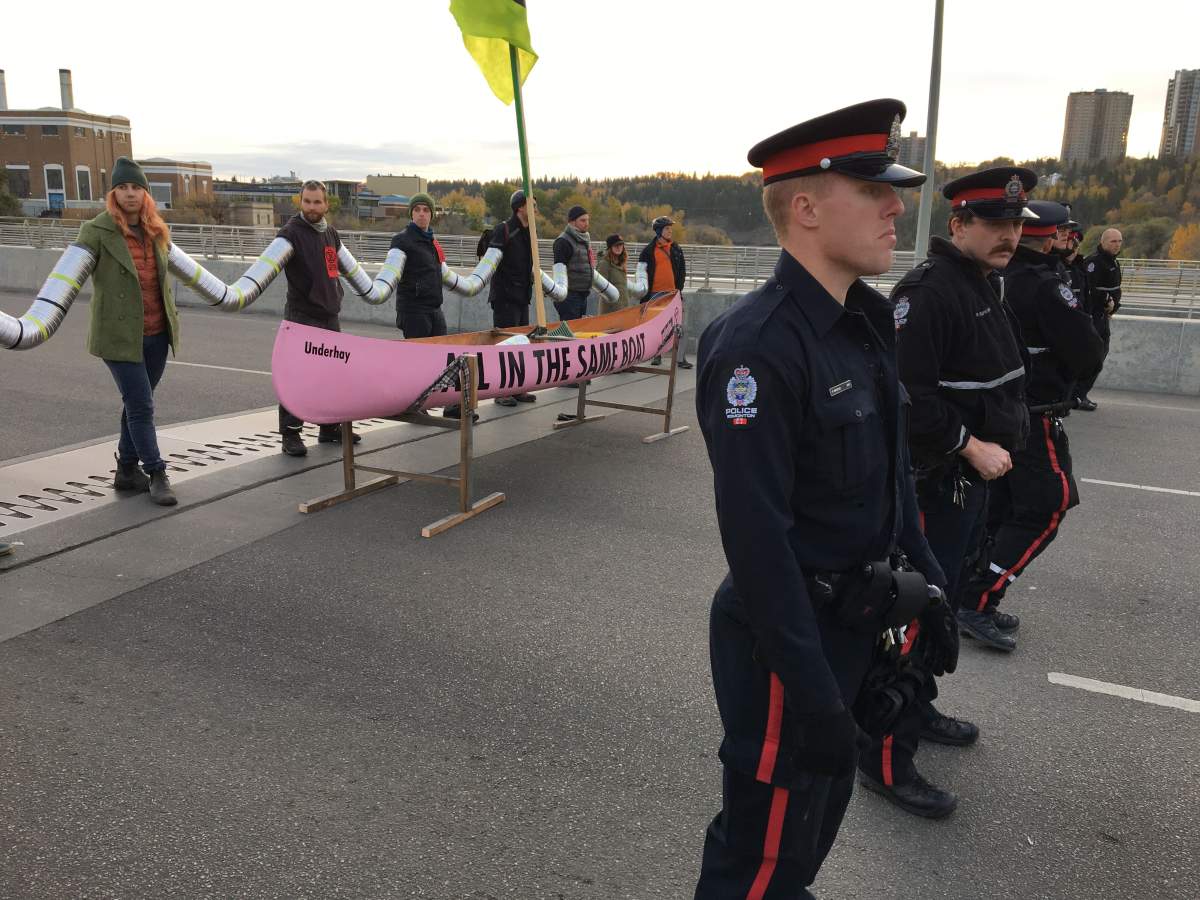


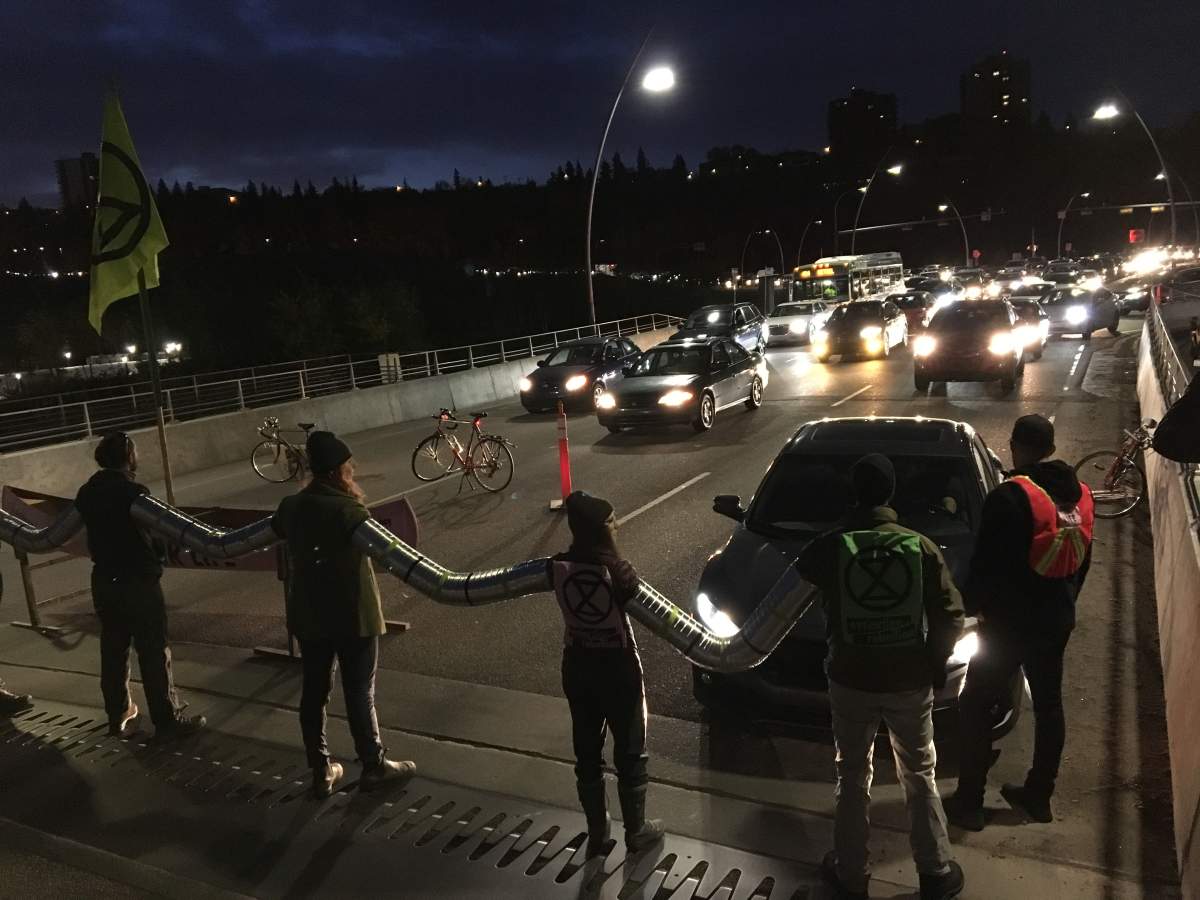
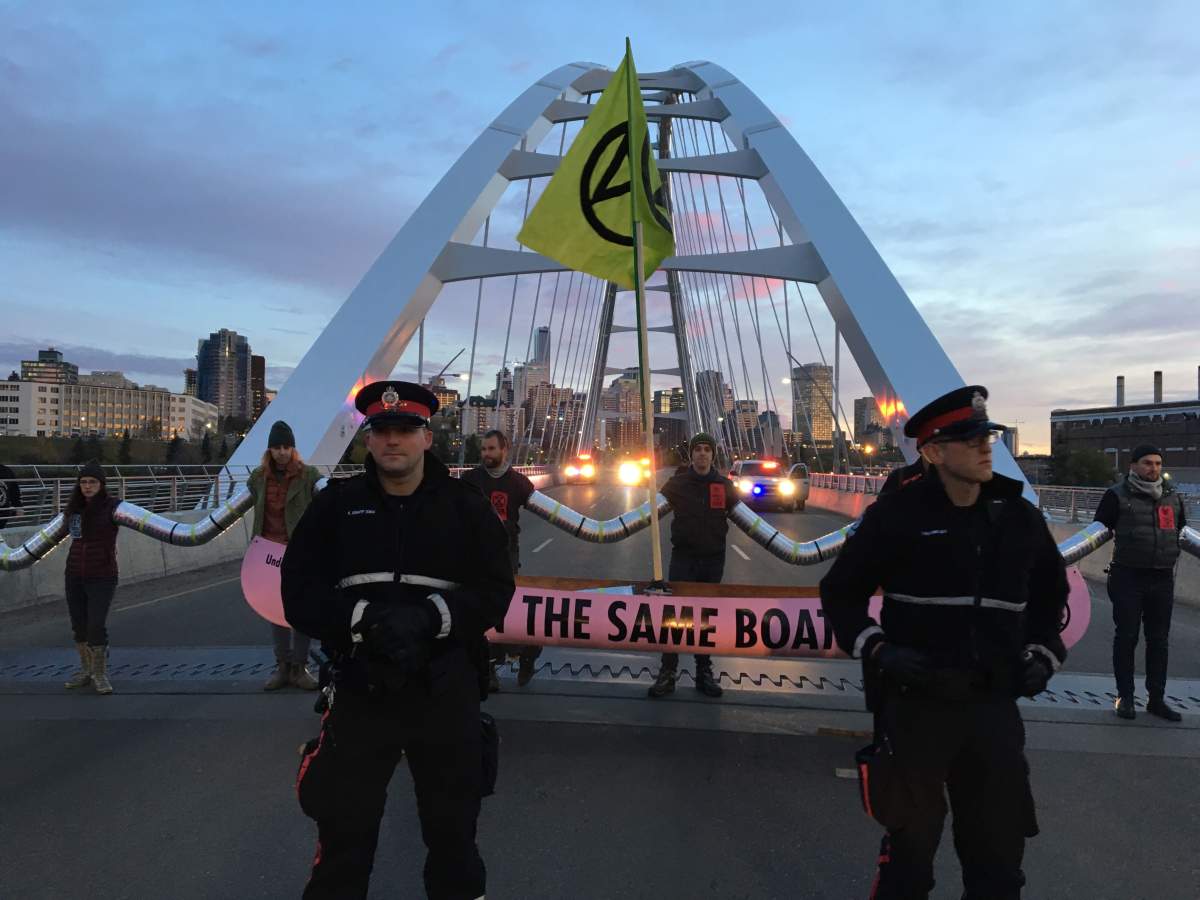
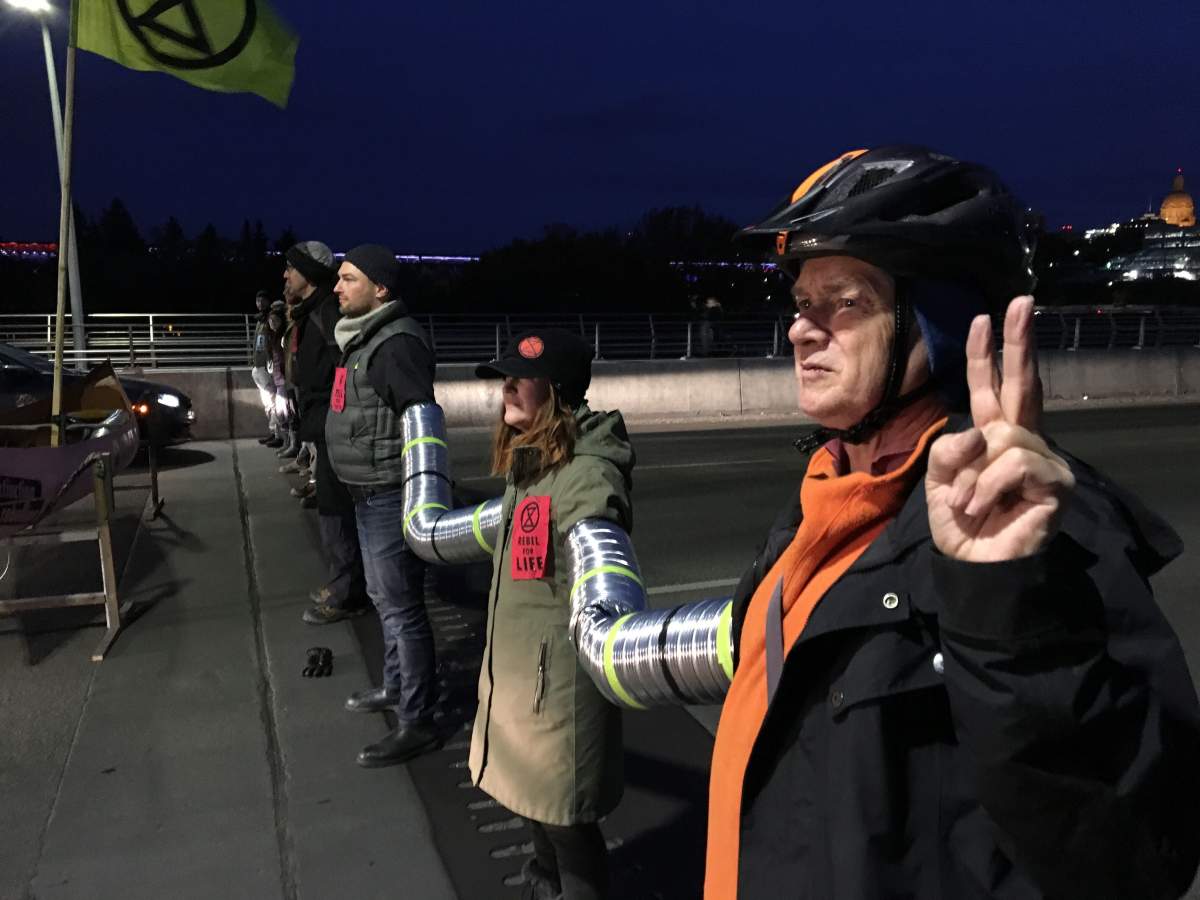
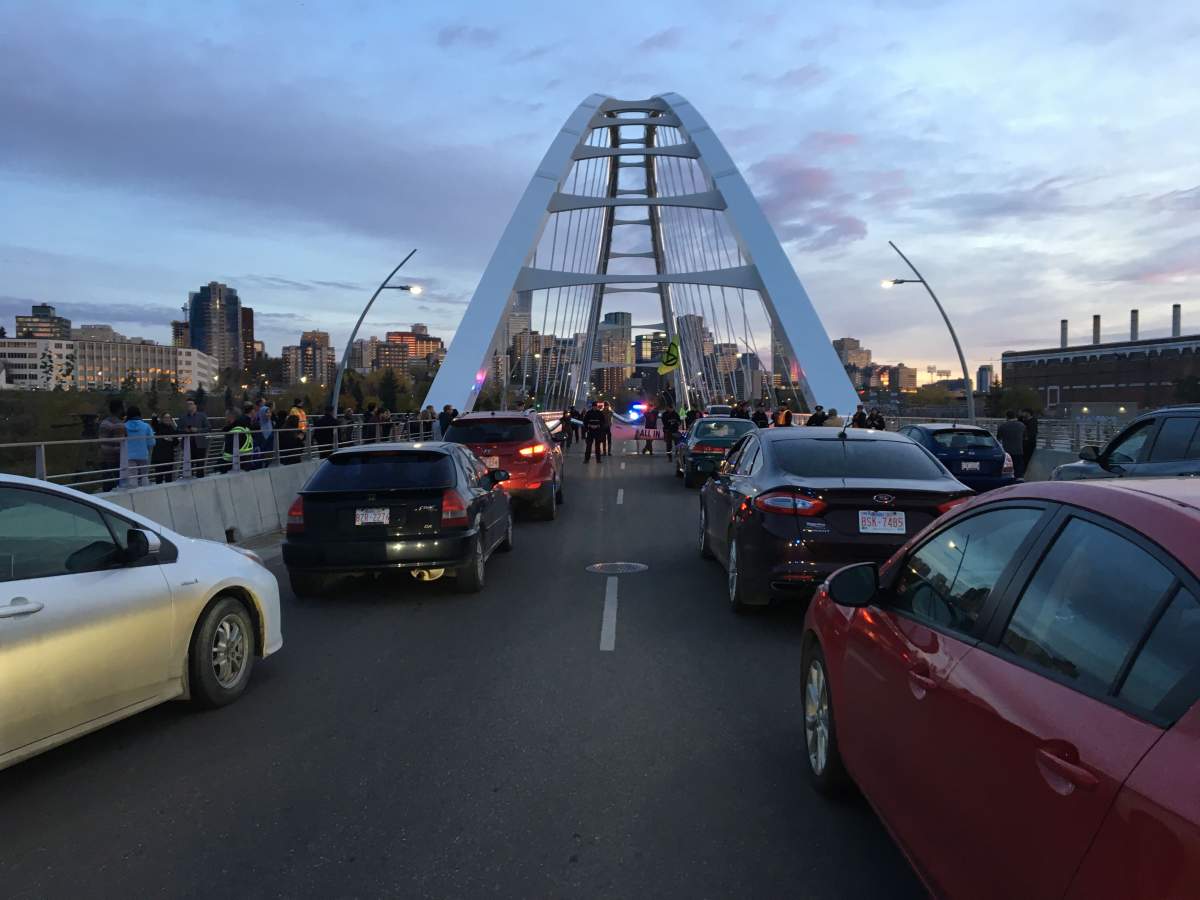
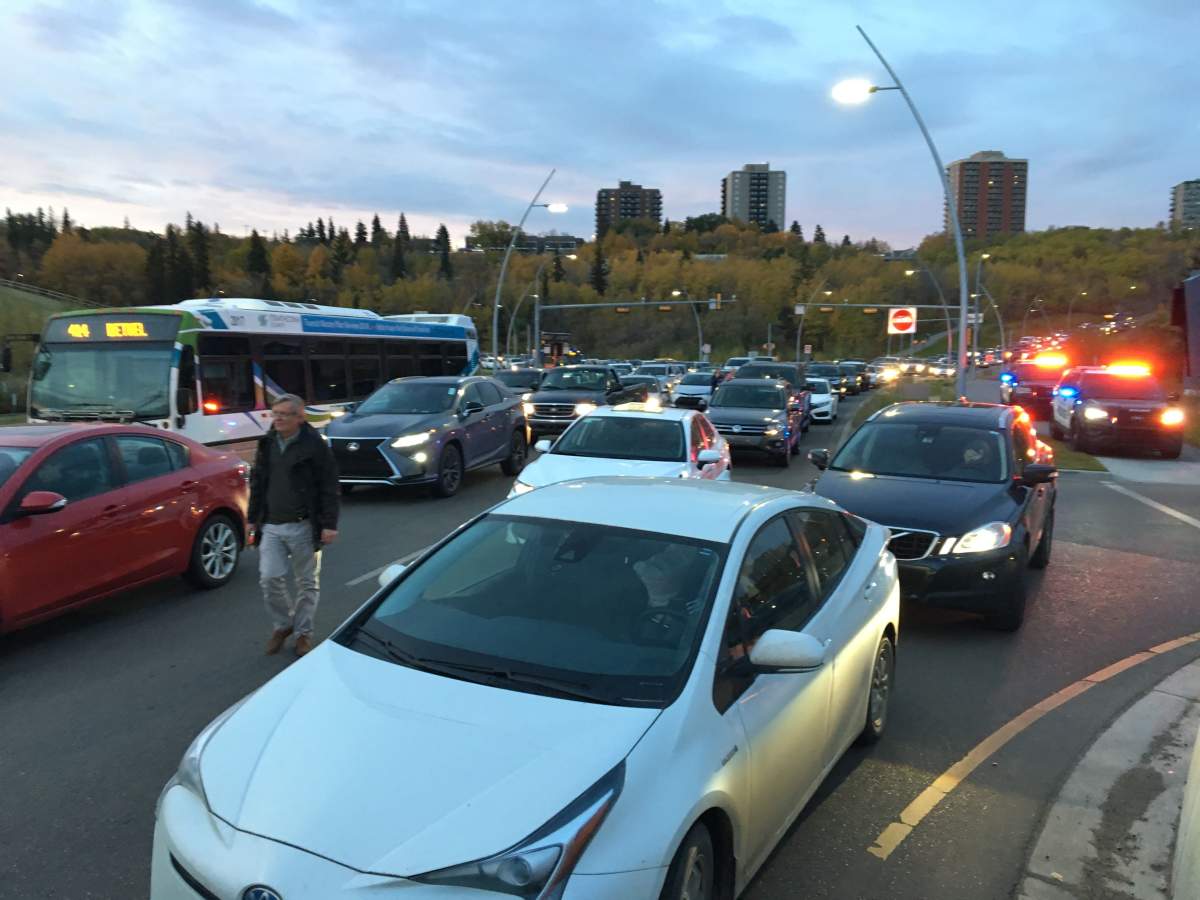




Comments
Want to discuss? Please read our Commenting Policy first.